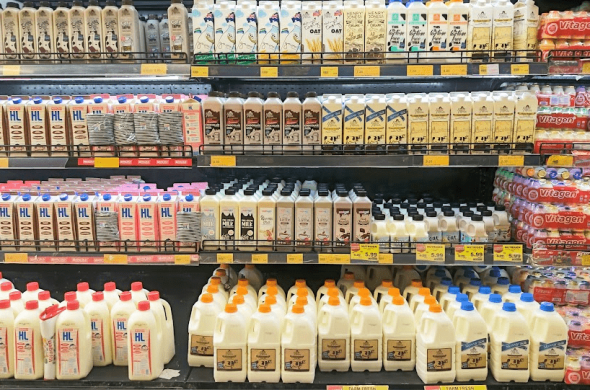The New Recipe for Experience: How Food & Beverage is Reshaping Hospitality in the UAE
In 2025, the food and beverage sector in the UAE is no longer just an extension of the hospitality experience; it is fast becoming the anchor. Across Dubai, Abu Dhabi, and other rising leisure hubs, dining is being redefined as a fully integrated, high value component of lifestyle, tourism, and guest engagement strategies.
The convergence of culinary innovation, experiential design, and technology is giving rise to a foodscape that is as much about emotional impact as it is about taste. In parallel, wellness consciousness and environmental responsibility are forcing hotels, resorts, and standalone dining venues to reconsider every part of their offering, from sourcing and service to sustainability narratives.
This transformation is not an isolated shift. It is part of a broader repositioning of leisure and hospitality assets in the Gulf, where demand is driven by diverse, high expectation consumer segments. The competitive edge now lies in who delivers more than a meal, who curates a story, builds a memory, and offers purpose through plate and place.
From Dining Venues to Culinary Destinations
The UAE has witnessed a sharp departure from traditional F&B models, especially in hotel environments. The outdated all day dining template has given way to curated, themed, and often celebrity driven concepts that elevate the property’s brand and market appeal. As of 2024, most of four and five star hotels in Dubai report that their F&B concepts now account for more than half of total guest engagement touchpoints, surpassing spa and wellness facilities.
Increasingly, restaurants are being treated as signature amenities, not support functions, with design, ambiance, and exclusivity engineered to attract both guests and local patrons. Hotels are investing significantly in high impact restaurant and bar concepts, some allocating up to 20% of their total renovation budgets to F&B upgrades to extend the guest experience beyond the room.
Standalone F&B establishments are also evolving. The UAE's multicultural demographic and its reputation as a global travel destination have made it fertile ground for experimental formats from immersive fine dining to cross-cultural culinary fusions that appeal to a global palate. These venues are built not only for taste but for storytelling, leveraging interior design, music, and thematic service to deliver a multi-sensory encounter.
Technology at the Core of F&B Evolution
The pace of technological integration in the UAE’s F&B scene is reshaping how food is designed, delivered, and consumed. In urban centers such as Dubai Marina and Business Bay, automation, AI, and digital interfaces are not futuristic novelties; they’re operational norms adopted by many of newly opened restaurants as of Q1 2025.
Digital ordering systems have streamlined dine-in and delivery flows, while AI-powered menu engineering is quietly optimizing offerings based on real-time customer preferences and profitability data. Some restaurants are using intelligent algorithms to suggest menu items to guests based on dietary restrictions, previous visits, or even time of day.
Cloud kitchens are another paradigm shift, removing the need for front-of-house infrastructure while enabling agile, scalable culinary brands. These delivery-first models have allowed operators to launch multiple virtual brands under one kitchen roof, responding swiftly to consumer demand and experimenting with new cuisine types at low cost.
In high-end venues, smart kitchen technologies and robot-assisted preparation are also being adopted to increase efficiency and consistency. These technologies are especially valuable in premium hotel environments where service expectations are high and labour costs are escalating.
What’s emerging is a data-powered F&B landscape where every interaction, from scanning a QR code to submitting a review feeds into a continuous loop of product refinement and guest personalization. As margins tighten and competition intensifies, the ability to leverage technology for operational precision and guest engagement becomes critical.
Wellness Driven Gastronomy
The rising importance of health and wellness is visibly altering the culinary landscape. Wellness today is not a niche trend; it is a dominant consumer preference, shaping everything from menu development to restaurant layout.
Diners now expect clean labels, transparent sourcing, and options that reflect dietary consciousness from vegan and keto to gluten free and low carb. Buffets, once a hallmark of the region’s five star hotels, are being restructured to reflect this new priority. Nearly 40% of luxury hotels in the UAE have reduced buffet space to incorporate wellness focused dining zones, including live cooking counters and detox juice bars.
There is a deliberate shift toward lighter, nutrient-dense menus that promote well-being without compromising on flavor or creativity. In-room dining has followed suit, offering wellness-focused options designed for relaxation, energy, or detox.
Moreover, guests are seeking holistic culinary experiences that tie into broader wellness journeys. Resorts and wellness retreats are incorporating nutrition consultations, therapeutic cooking classes, and curated detox programs into their F&B offerings. The intersection of food and self-care is becoming a high-yield area of differentiation, particularly appealing to long-stay leisure travelers and digital nomads.
Sustainability as a Business Imperative
Sustainability has moved past marketing rhetoric to become a tangible operational mandate. UAE’s hospitality and dining venues are being compelled both by regulation and consumer pressure to build responsible, future-proof operations.
Local sourcing is at the heart of this shift. Restaurants are building closer relationships with regional farms and food producers to minimize transportation emissions, support the local economy, and tell more authentic brand stories. The emergence of hydroponic and vertical farms within city limits has further enabled access to fresh, traceable ingredients.
Waste reduction is another key focus. With the help of smart kitchen tools and data analytics, operators are minimizing overproduction and food spoilage. Composting systems, eco-packaging, and water-saving dishwashing technologies are being deployed in premium and mid-market venues alike.
The challenge lies in embedding these practices into operations without diminishing guest experience. Success requires thoughtful design, integrating sustainability into the aesthetics, the storytelling, and even the pricing structure of the venue. Guests need to feel that their choice aligns with their values, without feeling that they’re sacrificing luxury or comfort.
Experience Engineering: Food as Memory and Emotion
Perhaps the most defining trend in 2025 is the repositioning of F&B as an emotional experience. Today’s diners are experience led, placing value on discovery, uniqueness, and sensory immersion. ≈65% of Millennials and Gen Z diners in the UAE prioritize "unique atmosphere" and "share worthy presentation" as key decision making factors when choosing where to dine.
Experiential dining formats underwater venues, sky-high pop-ups, and secret speakeasies, are pushing the boundaries of what a restaurant can be. Many of these are designed with social media in mind, with photogenic plating, thematic interiors, and moments of surprise built into the flow of service.
The visual identity of a meal has become almost as important as its flavor. The rise of the “Instagrammable café” or “viral dessert” is evidence that digital impact now plays a role in defining F&B success, especially among younger consumer segments.
Conclusion: Designing the Future of Food and Hospitality
The food and beverage sector in the UAE is at the epicenter of a broader transformation in how hospitality is imagined, delivered, and valued. The convergence of technology, wellness, sustainability, and experience is forcing a redefinition of success in the leisure industry.
Operators must move beyond serving meals to orchestrating moments. Innovation needs to be strategic, not trendy. Culinary offerings must serve brand identity, operational efficiency, and long term differentiation.
For stakeholders across the hospitality value chain, from hotel developers and F&B managers to investors and destination marketers, the imperative is clear: the future belongs to those who serve meaning, not just menus. In 2025 and beyond, food is not just a product; it’s a proposition.
Explore our latest insights on the food and beverage sector, supply chain strategy, food security and agribusiness, retail transformation, hospitality and destination development, and public sector readiness to learn how we help regional leaders prepare for tomorrow’s uncertainties.



